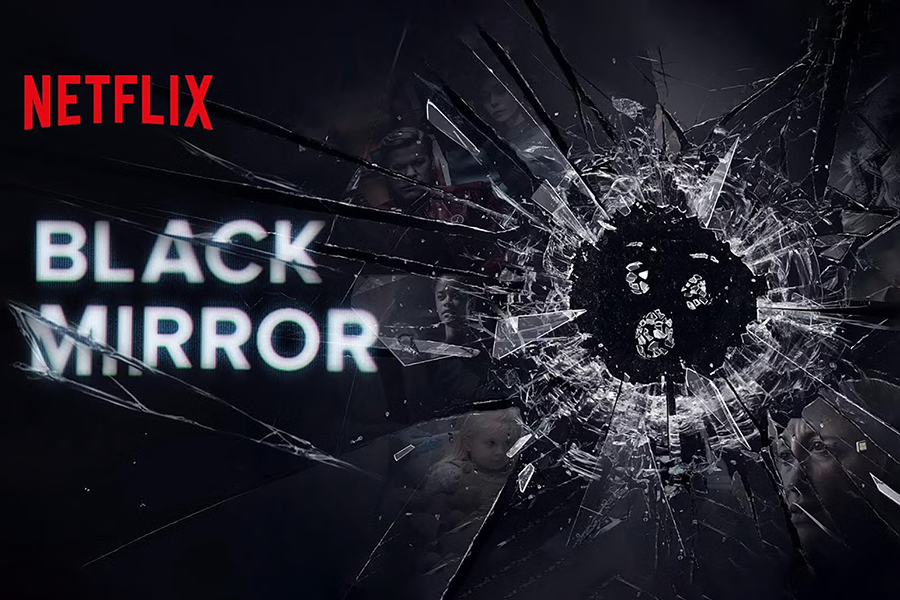2025 is the year of returns. “Severance,” “The Last of Us,” and “The White Lotus” all received new seasons, sparking new online hype and engagement around television again. Netflix, attempting to capitalize on this trend, released the seventh season of their popular anthology series “Black Mirror.” The show, written by Charlie Brooker, started on the network BBC, but shifted to Netflix in 2019. After two somewhat shaky seasons, “Black Mirror” is back and better than ever for season seven.
Each episode of “Black Mirror” tells its own contained story, with the only aspect linking the episodes being their focus on new technology. That precedent was changed in season seven. To generate hype around the show, Brooker decided to create sequels to two of the show’s most popular episodes: “USS Callister” and “Bandersnatch.” “USS Callister: Into Infinity” acts as a direct sequel to the original Callister, taking place directly where the last left off, while “Plaything” features Will Poulter’s evil video game genius character from “Bandersnatch.” These successors act as good hooks for more people to check out this season compared to last, as last season was entirely new concepts that were less popular than the average “Black Mirror” episode. While these sequels may not be the best episodes in the series, they are fun romps in familiar territory.
This season, “Black Mirror” takes some different directions with its episodes while still tackling the same ideas previous seasons tackled. “Common People,” the season premiere, acts as a perfect amalgamation of Brooker’s favorite subjects. The episode features strong performances from both Rashida Jones and Chris O’Dowd, who play a struggling couple. The episode begins with Jones’ character entering a coma that will never end. A brain technician introduces O’Dowd’s character to a new company that can save her forever by implanting a chip in her brain that will keep her alive, but at a cost. This episode is one of the more disturbing episodes of the season and of “Black Mirror” as a whole. It goes into similarly uncomfortable territory such as season four’s standout “Shut Up and Dance,” making commentary on how pain in the age of the internet is viewed as entertainment. “Common People” also pokes fun at the increasing prices of streaming services, possibly a jab at Netflix itself, but in the context of healthcare. Brooker always is successful at commenting on the pitfalls of the modern American system in the most extreme regard. The entire episode is uncomfortable, and the ending is a depressing mic drop.
The standout of the season is “Eulogy.” This episode stands not to shock, but to tug at the heartstrings of the audience. It stars Paul Giamatti, who delivers the finest performance in any episode of the series. The episode goes in a linear structure, following Giamatti as he remembers a long-lost love through pictures he had in his attic with a new piece of technology that literally puts the person in that picture. The episode is very introspective and somber, making it a clear frontrunner for one of the greatest episodes of “Black Mirror” of all time.
Overall, “Black Mirror” season seven is an incredible entry into this already incredible show, further cementing writer Charlie Brooker as one of the most fascinating voices in television.




